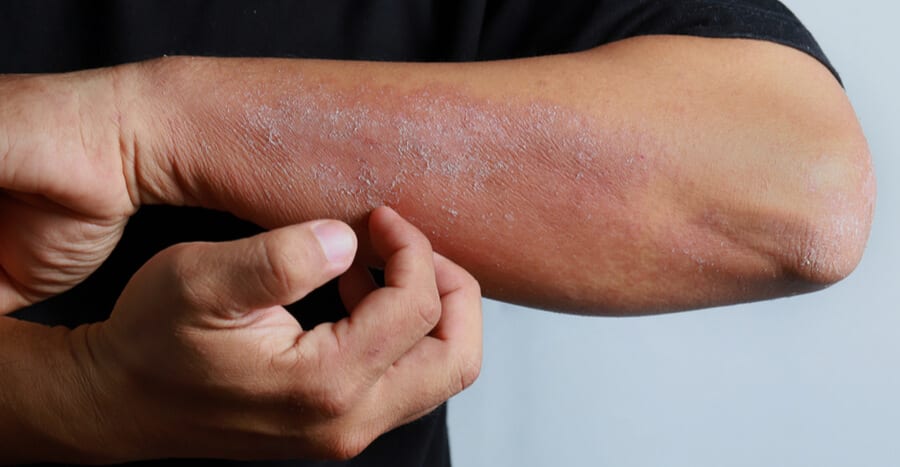Psoriasis is an autoimmune disorder that typically appears as flaky red patches on the skin. The immune system generally attacks foreign germ cells such as bacteria and viruses. Usually, the immune system can tell the difference between foreign cells and your own cells. When there is an autoimmune disease, however, the immune system mistakes part of your body as foreign and releases proteins that will attack healthy cells.
Although there is no cure, there are many treatments that will ease the symptoms of psoriasis. When you talk to our specialist, you may learn about the different treatment options.
Topical treatments are the most common and may be effective in treating mild to moderate psoriasis. Topical corticosteroids are the most frequently prescribed medication. Medications that contain Vitamin D and anthralin may help slow the skin cell growth. Salicylic acid reduces scaling and medications with coal tar reduces scaling, itching, and inflammation. Moisturizers help prevent dry skin especially if they are applied after bathing.
Light therapy is another treatment for psoriasis. It includes the application of ultraviolet B and ultraviolet A light. Sunlight, phototherapy, narrow-band phototherapy, and Goeckerman therapy are all forms of light therapy. Excimer laser treatment treats only the affected skin and not the healthy skin.
Injected or oral medications may be effective for some people. These are prescribed by our specialist and may include Retinoids, Methotrexate, and Cyclosporine. There are other drugs that suppress the immune system.
There are some dietary supplements and herbs that may help ease the symptoms of psoriasis, but you should only consider them if our specialist recommends them for your condition. Supplements may include aloe vera taken directly from the plant or in an extract cream. Fish oil that contains Omega-3 fatty acids is another supplement that may reduce inflammation. Oregon grape, also called barberry, is used as a topical application which may reduce the symptoms.
Home remedies include soaking in a lukewarm bath that contains Epsom salts, colloidal oatmeal, or other additives. Exposing your skin to sunlight for a short time may improve psoriasis, though you shouldn’t expose it too long as sunlight could make it worse if it is overexposed.
Our specialist may be able to diagnose your psoriasis by looking at your medical history and examining your scalp, nails, and skin. In rare cases, a biopsy may be taken to be sure your condition is not a different disorder or to determine the exact type of psoriasis. To schedule a consultation, contact us at Atomic Dermatology in Pasco, WA today!



